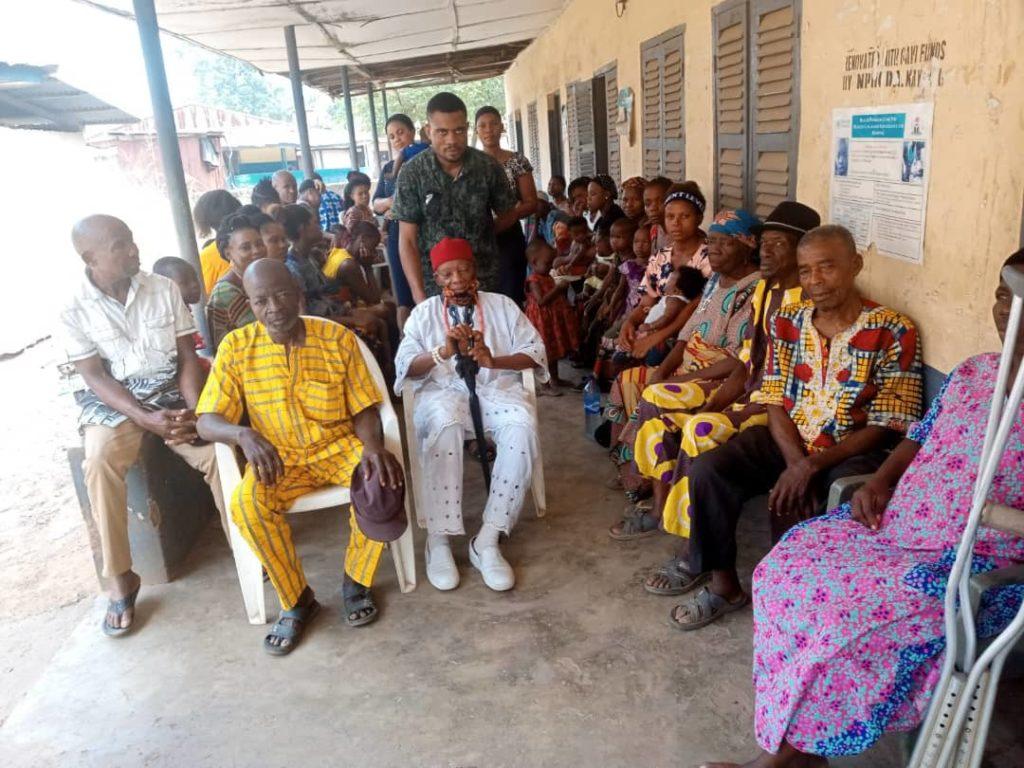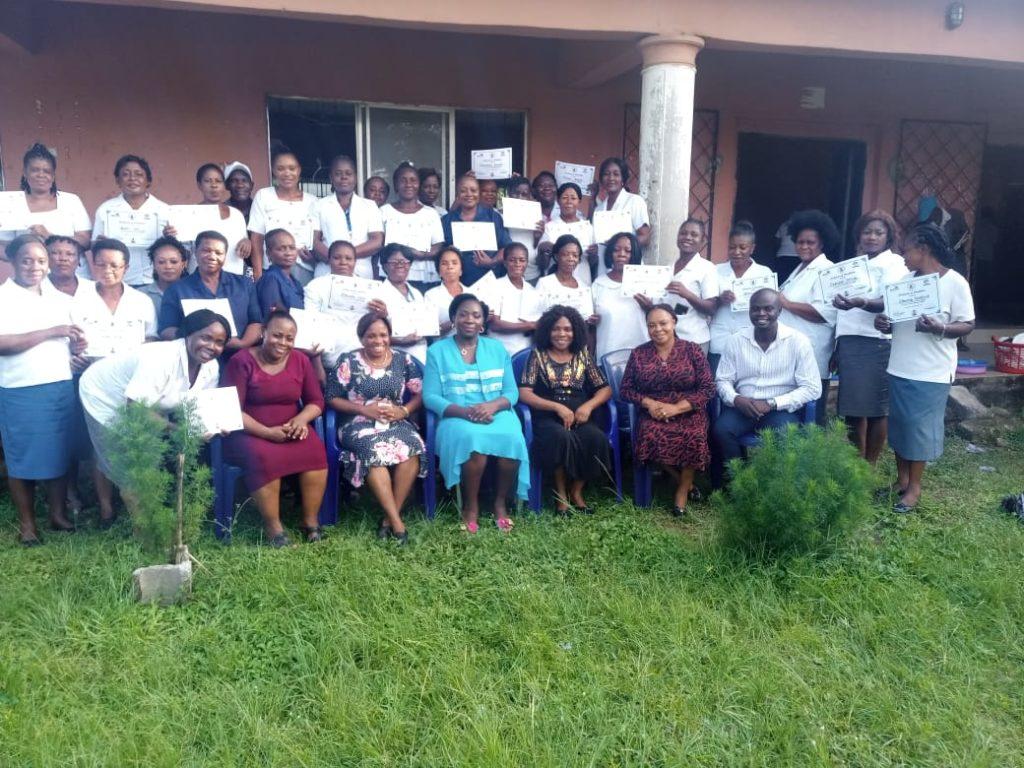
Community engagement is key to the sustained success of public health and social measures (PHSMs) in response to outbreaks. As witnessed during the Covid pandemic (among others), public health and social measures are a key strategy to reduce the transmission of pathogens with epidemic or pandemic potential. The pandemic also reminded us of the need to strengthen community engagement for health before there’s an emergency. A very useful reminder, in a year that will see UN High-Level meetings on Universal Health Coverage (UHC) and on Pandemic Prevention, Preparedness and Response (PPPR).
The era of the so called ‘poly crisis’ that we live in, is a time of convoluted and interconnected global challenges. Disruptive trends of inequality and inequities expose biases in global public health practices, and reflect in the disrupted global economies and societies. In many cases, reforms needed for the well-being of populations are thus more political. The recent elections in my country, Nigeria, will hopefully lead to reforms at the scale needed. The response to health emergencies, an increasing phenomenon in many sub-Saharan countries, demand structural reform. Put differently, post the elections, Nigeria is at a crossroads with an unprecedented opportunity to build resilient health systems that can withstand any health crisis or disruption.
Nigeria currently does not have the required strong public health capacities and ties to communities for identifying and responding to potential disease outbreaks. For example, in the recent outbreak of Mpox (back in Nigeria since 2017), the long incubation period of 5-21 days, coupled with the high number of untraced contacts in the current outbreak, meant the virus had ample opportunity to seed new transmission clusters. It goes without saying that case identification and contact tracing will be much easier if people know and trust surveillance mechanisms. So here’s one key project for the new government already.
But there’s more to it. The uncertainty involved in predicting the spread of a disease often results in authorities rapidly taking decisions to be ‘seen to be acting’ and thus be ‘in control’ of the disease situation. The temptation, in such situations, is to rely on simplistic pharmaceutical interventions as a quick-fix solution. However, disease outbreaks build upon and exploit inequities. If these interventions are implemented without (sufficiently) addressing underlying social challenges and political tensions faced by affected populations, they run the risk of being less acceptable, less adopted, and less effective (in the Covid pandemic, think of the lockdowns, mandatory COVID vaccination, etc.). These interventions should therefore be coordinated with implementation research, strong risk communication and community engagement. Health care professionals should also be targeted with detailed information about the presentation and transmission of Mpox, COVID (or any other emerging infectious disease) to ensure timely diagnosis, support for those infected, and public health notification of cases.
We also need to research the social nature of control options, including how they can be implemented to reach populations most at risk. This is especially important in the context of Mpox and other relatively ‘new’ diseases, given the limited reach and availability of (new) drugs, vaccines and antivirals in sub-Saharan Africa (for the reasons you know). To help end chains of disease transmission, PHSMs require a better understanding of the social, ecological, and scientific interconnections between endemic and non-endemic areas, and need to recognize and address the structural drivers of disease emergence, including social, cultural, and ecological factors.
PHSMs should thus catalyze the study of the social considerations from previous examples of disease emergence to reflect on 1) the range of response strategies available to control Ebola, Mpox, COVID, or any other emerging disease and 2) specific considerations for disease Risk Communication and Community engagement (RCCE).
Furthermore, the global COVID-19 response has emphasized the importance of analyzing disrupted health systems, not limited to equitable access to vaccines, therapeutics and diagnostics. Key actors need to be mapped and identified across institutions, Key Population (KP) communities, CSOs, senior-level bureaucrats, the media, politicians, and the private sector; using an “influence and alignment framework” (see for example the (2009) Consolidated Framework For Implementation Research (CFIR)) to provide an overview of all ‘One Health’ influencers within the multi-sectorial collaboration network. In addition, periodic ‘Strengths Weaknesses Opportunities Threats’ (SWOT) analyses should be done to provide evidence, and a basis for advocacy for increased budgetary allocations, releases and tracking.
Last but not least, a resilient health system that can cope with health emergencies certainly also requires UHC. Nigeria instituted health financing reforms in the past, with the National Health Insurance Scheme (NHIS), an agency of the Federal Ministry of Health, as the main tool to achieve UHC. However, UHC remains elusive in my country, with out-of-pocket spending (still) accounting for over 70% of the country’s total health expenditure. Government health expenditure in Nigeria (at 4.52% in 2021) clearly falls short of the 15% recommendation of the 2001 Abuja Declaration. And evidence shows that the percentage of Nigerians covered by any form of prepayment or risk pooling schemes is less than 5% of the population. In case you want another example of recurrent problems in the Nigerian health system, recently the Pharmaceutical Society of Nigeria (PSN) sought legislation to redress drug scarcity in public hospitals.
So let’s hope the new government will take decisive action on UHC. Combined with effective PHSMs (in which stronger community engagement is vital), we can build a resilient health system that can cope with health emergencies now and in the future, while also taking care of Nigerian citizens when they suffer from more mundane health concerns.
It’s about time.
